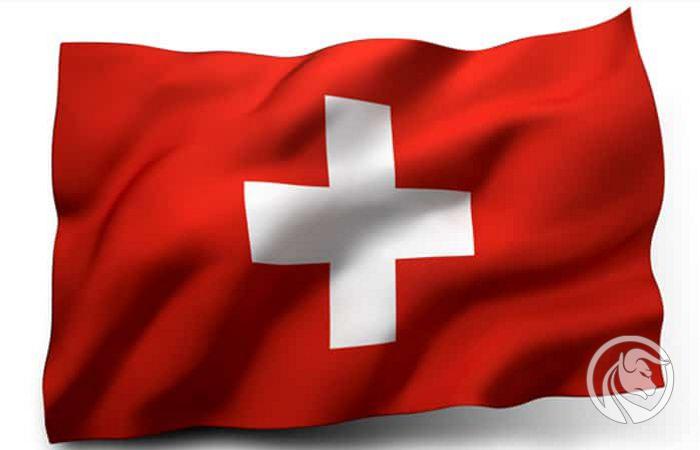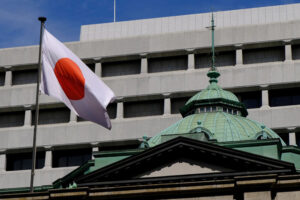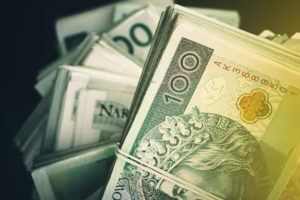Could you make a profit from the Frank massacre?
Black Thursday on forex, January 15, 2015 ... News spread quickly about big losses of brokers, and above all retail investors and their huge overdrafts. So many have probably asked themselves - Was it possible to earn money from the Frank massacre? If so, by what miracle and how could this course of events be predicted in any way?
We invite you to get acquainted with the history of one of our native traders, who swept the franc (and brokers) with cunning and experience.
My 'Soros trade'
The plan for 2015 was to describe only exceptionally successful or very interesting investments, but I did not expect that in mid-January I would make a transaction of my life - my private 'Soros trade'. Many traders and brokers will remember January 15, 2015 as 'Black Thursday', which ended their adventure with the market. I was lucky (*) that during the collapse of the course EUR / CHF I opened a short position on this pair.
I will not boast about the exact result, because you will not believe it anyway. In addition, I realize that among readers I can have mortgage franchises, broken by the increase in installments, as well as forex franchisees, which the broker cleaned up the account, or even funded debit, so I will not be nervous and go straight to the substantive part.
I hope that you will draw constructive conclusions from this post, especially since in the era of currency wars and the permanent intervention of central banks, the situation may soon be repeated.
* - Some people were lucky enough to be born smart, while others were even smarter and got born lucky - Ed Seykota 😉
Analysts and experts: 'Shock, this was unpredictable!'
On the contrary, it was possible and did not require secret knowledge. The key to success was the observation of the weakness of eur / chf from the summer of 2011, and especially in the last weeks of 2014 and the first of 2015. The weakness was all the more pronounced as it took place in the face of unlimited euro purchases by SNB and the efforts of the ECB, which has promised to do 'whatever it takes' to stave off the single currency crisis.
READ NECESSARY: Frank is crazy, brokers are counting losses
Let's start with the graph on a monthly scale. From the peak of the boom in 2007 to the Greek crisis in 2011, the euro saw 40% decline in relation to Frank. 6 IX 2011 SNB devalued the Swiss currency to 1.20 level and announced the defense of this level by printing an unlimited number of CHF and exchanging it for the euro. Taking into account the value of 1.20, we still get near 30% decrease from the record level 1.68 (#1 on the chart). One would expect that a strong correction would be followed by a spectacular correction, especially when the ally of the euro buyers is one of the most important central banks. In the meantime, nothing like this happened (#2). The eur / chf chart was lazily waving in the 1.20-1.25 range and the top of the Euro-bulls' ability was the 1.2647 level. It was a clear signal for me that playing on the long side of the market does not make much sense, and that you do not count on easy profits despite the strong support of the SNB.
The fact that it was not profitable to buy was by no means a prerequisite to sell / sell, or fantasize about lifting the 1.20 barrier. You do not know the day or the hour - since this lethargy lasted over 3 years, it could well take another 3. However, in November 2014 appeared the first vibrations heralding the upcoming earthquake.
Let's move to the graph on a daily basis
I have highlighted four key moments:
#3 - November 2014 - the rate drops to the level of 1.2007, the lowest for over two years. The situation got so interesting that I threw the eur / chf graph on the main dashboard and started to look at it more closely but it was still too early for any action. After all, in the spring and summer of 2012, the course also glued to this level, after which the investors understood that they would not win from the SNB and the listings returned to the 1.20-1.25 corridor.
# 4 - December 2014 - the rate drops to 1.2006. Attempted counterattack by buyers (arrow between # 3 and # 4) ended in total failure and all the bulls won was 1.2045. Then I saw that the fluctuation band with a width of 500 pips (1.20 - 1.25) was converted into a range with a width of less than 50 pips (1.2000 - 1.2050). Something was up and I decided to act before it was too late. I opened my first short positions in eur / chf.
#5 - 18 December 2014 - on this day the computer was turned on quite late and the first information I read was about the SNB's decision to introduce negative interest rates. I realized that the Swiss did not really joke and I was blown away by the cold sweat. Before I started the transaction platform, I had time to think - let the stop-loss at 1.21 level work, otherwise the losses may amount to several hundred pips, when eur / chf will go up. What was my surprise (and relief!) When the chart loaded. The course not only did not take off into orbit around the globe, but it was not even able to reach my stop-loss on 1.21. Despite such a spectacular SNB decision! What's more, not only he jumped to just 1.2096, he was not able to maintain this level and ended the day with a low score of 1.2038.
#6 - in the following days of December and early 2015 the EUR / CHF course behaved exactly as I expected - it descended lower and lower when approaching the magical asymptote defended by the SNB. At that moment I knew that my Soros trade might be close. The behavior of the course required a simple question - Who buys these billions of Franks against the central bank, with an unlimited amount of ammunition? Obviously some idiots - Russian oligarchs fleeing a sinking ship, Greeks fearing a return drachma or maybe nerds-macro-traders like our native Krzysztof 'Eurogeddon' Rybiński. Unless…
Unless smart-money knows something that dumb-money has no idea about. Smart money, or Sorosowie AD2015 - top hedge funds, bankers from Credit Suisse, UBS, Goldman Sachs and other colleagues of Jordan, who have the privilege to eat with him lunches in Zurich or go skiing in Zermatt. While the market lambs heard assurances that the 1.20 level was inviolable, forex sharks occupied short positions in eur / chf. The probability that the SNB would give up weakening Frank was very high for me. But the most interesting and probably the most important conclusion from this article is that even if I was not sure of my analysis, I would still be playing on the short side of the market due to the cosmic risk / reward ratio offered by this trade.
Risk / Reward
I expected that if the SNB frees Frank's rate, it will weaken on the first day to the area of, say, 1.16, and in the following days it will slide further south, towards 1.10, 1.05 and maybe, within weeks, to the level of 1.0. In my wildest dreams, I didn't expect the rate to drop to 0.85 in a matter of minutes. Anyway, I was counting on about 500-1000 pips profit with a risk of 10 pips! Yes, that's not a mistake, 10 pips of risk.
Of course, 10 pips is nothing even for the most stable currency pairs, but the pressure on Frank's appreciation was so great that in the 7 days preceding Black Thursday, the daily spread was a maximum of 6 pips! If I had been thrown out of the market by a random spike, I was ready to go short again. Several times - even when I was 'bumped' 5 times in a row, my risk was still 50 pips versus the chance of earning 500 to 1000 pips. Such an asymmetric risk-reward ratio has been found on the market once in many years and this time I was able not to miss the opportunity.
Of course, for players on the long side of the eur / chf market, this asymmetry turned out to be a nail for the coffin. Anyone who lost money during Black Thursday must answer the question: What did I do in a trade where I risked ~ 2000 pips to earn ~ 50 at best? Yes, I understand, Thomas Jordan assured you that 1.20 is certain like a Swiss bank, but ...
Black Thursday and transaction execution
My right hemisphere began to calculate potential profits quite quickly, so the question of converting the above analysis into cash was simple for her - we will make the maximum selling as many eur / chf lots as the broker will allow and then wait for the inevitable. Fortunately, the left hemisphere did not get carried away and began to figure out what could go wrong. And what if the SNB, just for the sake of blaring the speculators, raised the defense rate to 1.25 ?! Sure, it might seem absurd today, but on January 15th in the morning for sure most of you would say it's more likely than 0.85 in a few hours! So there was a 'tail risk' that I would lose a few hundred instead of 10 pips. Well, I had to give up the concept of 'open as many shorts as possible and wait'.
READ ALSO: Forex brokers and overdraft protection. List of offers
In the end, I decided that only 10% of the planned position will open at once. The remaining 90% was to be opened using a sell-stop order. Since the market for several days fluctuated in the 1.2006 - 1.2012 range, I assumed that the 1.2002 level, 2 pips over the magical limit of 1.20, will be a signal - the presentation began. Only then will it not be too late to open short positions, will someone want to buy eur / chf when the market falls into the abyss?
These fears turned out to be correct. At my main broker - Interactive Brokers - I set 3 sell-stop orders and only one was executed, with the widest range between the activation price and the execution limit. For the other two, the speeding course ran like a hot knife through the butter. Fortunately, I had a brilliant idea to use Polish forex platforms for my purposes - and . The adjective genius comes not so much from a lack of modesty as from the added satisfaction of overcoming it market of makers with their own weapons.
As you know, market makers do not need market liquidity to execute orders, at least not immediately. In most cases, they do not transfer orders to the wide market, as Interactive Brokers do, but colloquially speaking - they 'take it on their feet', becoming the other party to the transaction. The client will earn - they lose, the client will lose - they will earn. And since 90% of customers are losing, under normal market conditions this is a wonderful business model. Except that January 15, 2015 was not a normal day, although initially there was no sign of the upcoming storm. So when the eur / chf rate slumped to the region of 1.2002, both like and they fulfilled my orders without any problems, opening short positions unaware of what was about to happen. We all know what happened next, so I will not write about it. That was a good day.
SNB - irresponsible liars?
'Analysts and experts', especially Polish, considered SNB's decision as hasty, bad, irresponsible or simply stupid. "The Swiss shot themselves in the foot," claimed one. "There was no communication with the market" - added others. I totally disagree with this. I can understand the bitterness of people who lost a lot of money as a result of Frank's consolidation, but ...
In the brutal reality of currency wars, the role of central banks is neither to help Polish borrowers or small investors on forex platforms, nor Mario Draghi or anyone else. I do not think that the central bank must be particularly transparent and clearly communicate its intentions to the market. On the contrary, once in a while he should give him a snap on his nose, if only to eliminate the possibility of easy and risk-free earning for his monetary politicians. Of course, a flick in the nose of speculators meant in this case dramatic losses of thousands of families in Eastern Europe but whether it was the SNB's fault or those who underestimated the risk, they put on the whole property and did not try to extricate themselves during the 3 summer credit holidays on the cost of Helvets?
I also wonder what this communication with the market should look like, preparing it for a dramatic change in policy. Was Thomas Jordan supposed to go out to journalists on January 12 and say - 'in a few days we may change our policy towards the Euro'? The 1.20 barrier would break a dozen seconds later and if the SNB wanted to stick to the plan and persevere until Black Thursday, it would have to buy € 10bn per hour.
As citizens, we may be intrigued by central banks calling such numbers, we may even be appalled by the fact that some people know some things a little more and a little earlier. But as a trader, I must not wring my hands and despair that the financial markets are difficult to understand, or even brutal, or unfair. I can only try to join the "power group" - sometimes its actions are so expressive that an individual investor on his Meta Trader can see them, without access to a professional Reuters website, Bloomberg and a team of analysts.
At the end, I will refer to the so-so-repeated financial media thesis that the Swiss have done a great deal to the appreciation of Frank. Just as celebrities are known for being known, so is the theory often quoted, because journalists often refer to it. By analogy, Russia should be on the brink of prosperity with its discounted ruble 😉 And seriously - over the last 45, CHF has appreciated against the dollar by around 400%, meanwhile Swiss banking, watches, pocket knives, cheese, chocolate, alpine slopes, sector pharmaceutical and technological - they are still doing great. Case? I do not think 😉
Who is next?
On the wave of free-hysterics, the media has begun searching for more currencies whose bonds with the euro or the dollar may soon be broken. Talks about the Danish crown and the Hong Kong dollar. Are these the right types? Well, the best deals are rarely described in newspapers before the fact, but who knows, maybe one of these courses will be released.
Personally, I think you should put things into perspective and not just focus on pegs. Currency wars are a fact, even though it is taboo in the establishment. Central banks all over the world are intervening in financial markets with more and more new means. Some, such as EBC, they do it 'with a certain amount of shyness', others like BOJ, are as incalculable as kamikaze.
Although in theoretical assumptions these programs are supposed to be a miracle cure for economically depressed economies, they actually generate new tensions and destabilize the markets. With the fact that this happens quite slowly and nobody notices it. Suddenly trach, one of the elements of the system can not stand and we have black Thursday, Friday, etc. Shock, this could not be foreseen!
In short, keep your eyes wide open because an interesting transaction can wait just around the corner. We live in interesting times 😉
Source of the article: TraderBlog






















![Forex Club – Tax 9 – Settle tax on a foreign broker [Download the Application] Forex Club - Tax 9](https://forexclub.pl/wp-content/uploads/2024/02/Forex-Club-Podatek-9-184x120.jpg?v=1709046278)
![Trading View platform – solutions tailored to the needs of traders [Review] trading view review](https://forexclub.pl/wp-content/uploads/2024/03/trading-view-recenzja-184x120.jpg?v=1709558918)
![How to connect your FP Markets account to the Trading View platform [Guide] fp markets trading view](https://forexclub.pl/wp-content/uploads/2024/02/fp-markets-trading-view-184x120.jpg?v=1708677291)
![How to invest in ChatGPT and AI? Stocks and ETFs [Guide] how to invest in chatgpt and artificial intelligence](https://forexclub.pl/wp-content/uploads/2023/02/jak-inwestowac-w-chatgpt-i-sztuczna-inteligencje-184x120.jpg?v=1676364263)



![Izabela Górecka – “Success on the market depends not only on knowledge, but also on emotional stability” [Interview] Izabela Górecka - interview](https://forexclub.pl/wp-content/uploads/2024/04/Izabela-Gorecka-wywiad-184x120.jpg?v=1713870578)
![WeWork – the anatomy of the collapse of a company valued at $47 billion [WeWork, part II] wework bankruptcy story](https://forexclub.pl/wp-content/uploads/2024/04/wework-bankructwo-historia-184x120.jpg?v=1711729561)
![Adam Neumann – the man who screwed up Softbank [WeWork, part AND] adam neumann wework](https://forexclub.pl/wp-content/uploads/2024/04/adam-neumann-wework-184x120.jpg?v=1711728724)





![The most common mistakes of a beginner trader - Mr Yogi [VIDEO] Scalping - The most common mistakes of a beginner trader - VIDEO](https://forexclub.pl/wp-content/uploads/2024/03/Scalping-Najczestsze-bledy-poczatkujacego-tradera-VIDEO-184x120.jpg?v=1711601376)
![Learning patience: No position is also a position - Mr Yogi [VIDEO] Scalping - Learning patience - No position is also a position - VIDEO](https://forexclub.pl/wp-content/uploads/2024/03/Scalping-Nauka-cierpliwosci-Brak-pozycji-to-tez-pozycja-VIDEO-184x120.jpg?v=1710999249)
![When to exit a position and how to minimize losses - Mr Yogi [VIDEO] Scalping - When to exit a position and how to minimize losses - VIDEO](https://forexclub.pl/wp-content/uploads/2024/03/Scalping-Kiedy-wyjsc-z-pozycji-i-jak-minimalizowac-straty-VIDEO-184x120.jpg?v=1710336731)


















